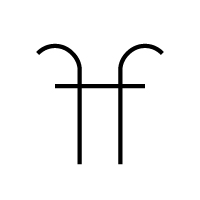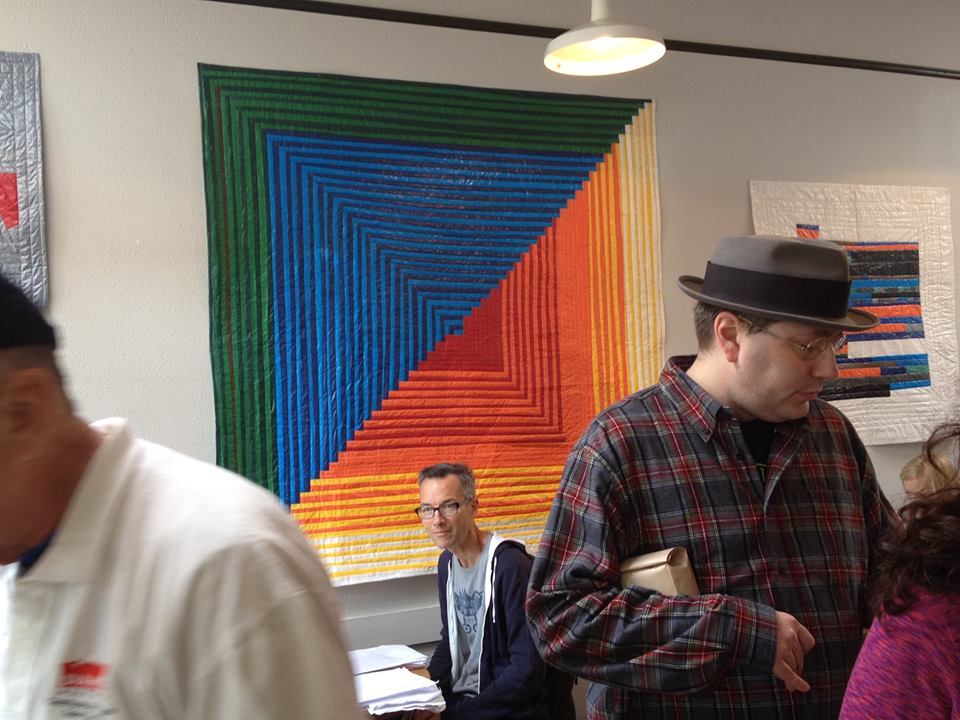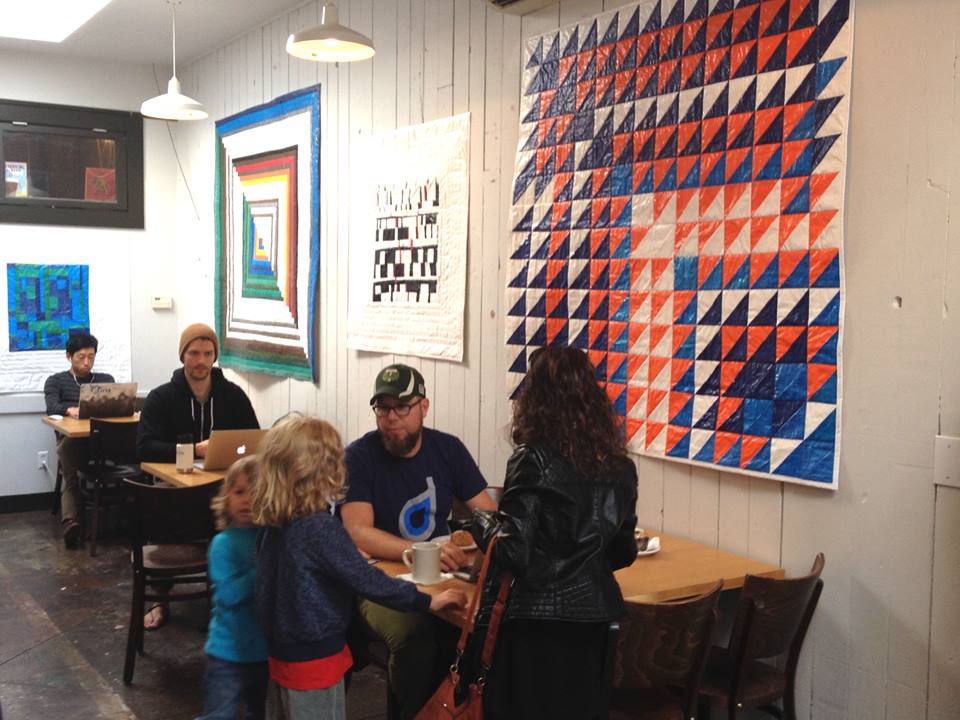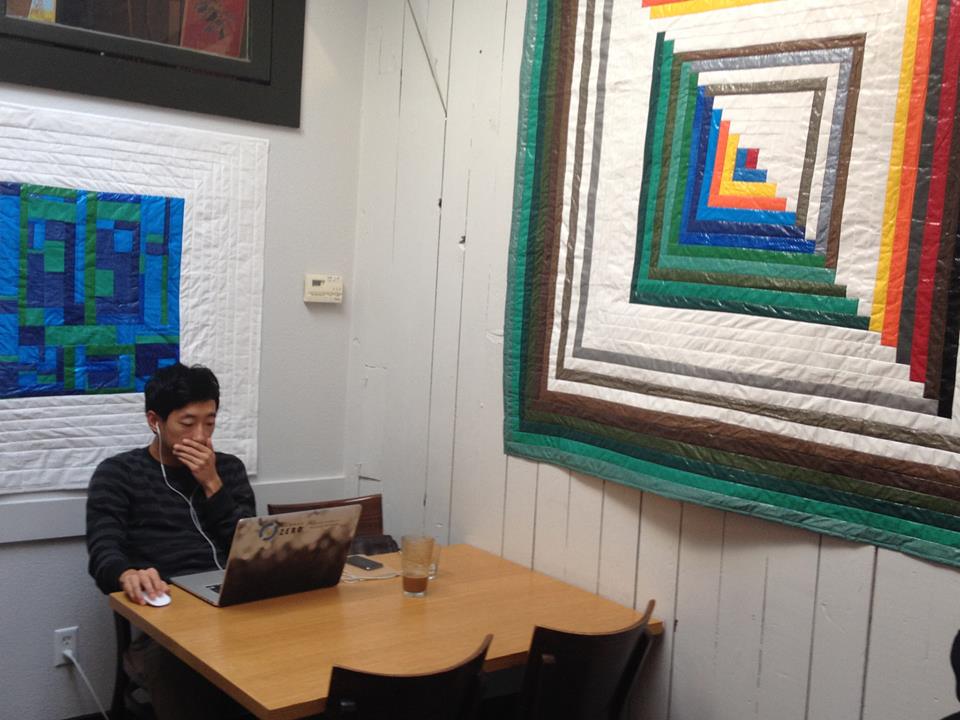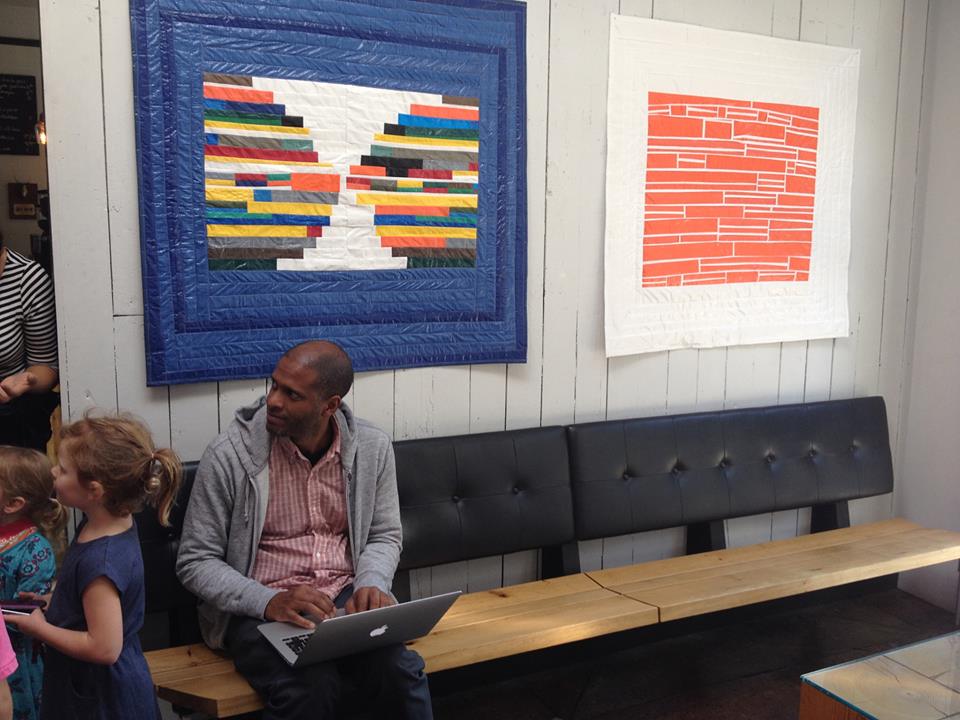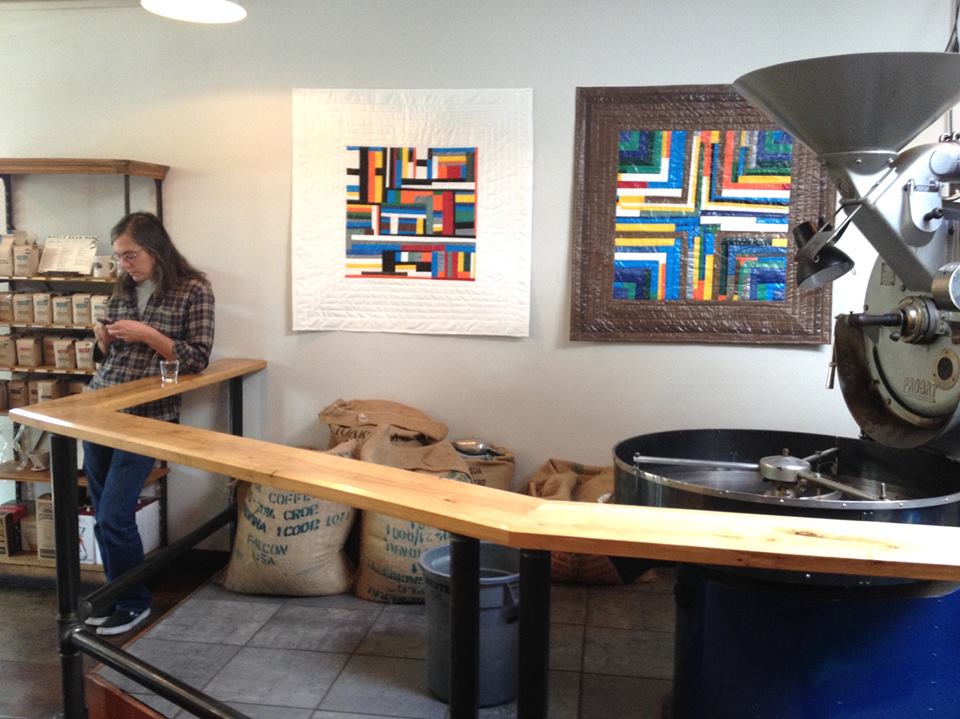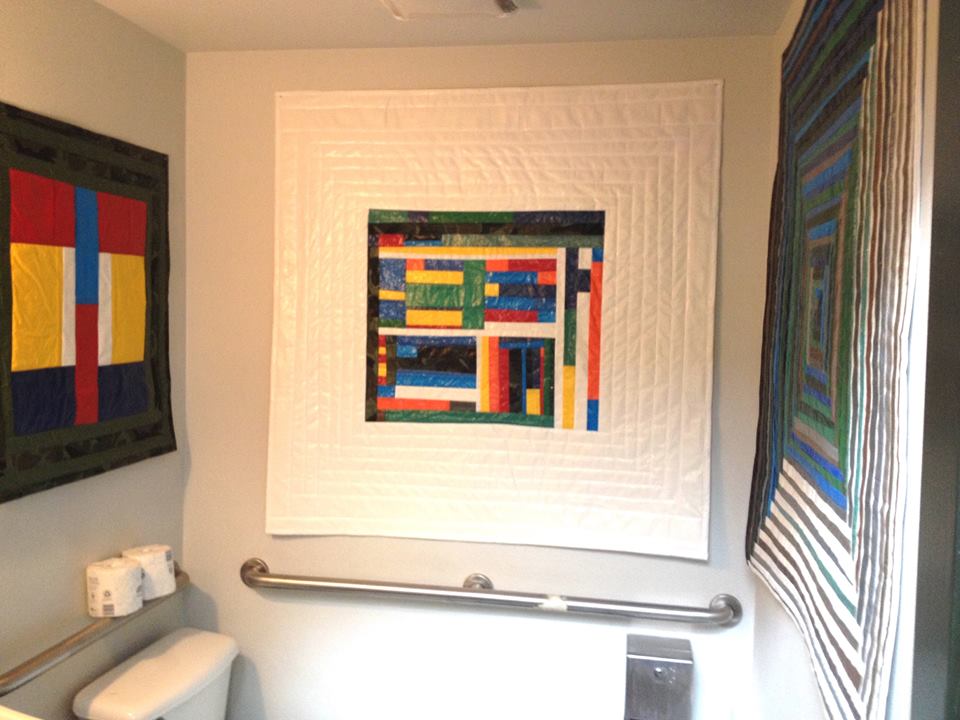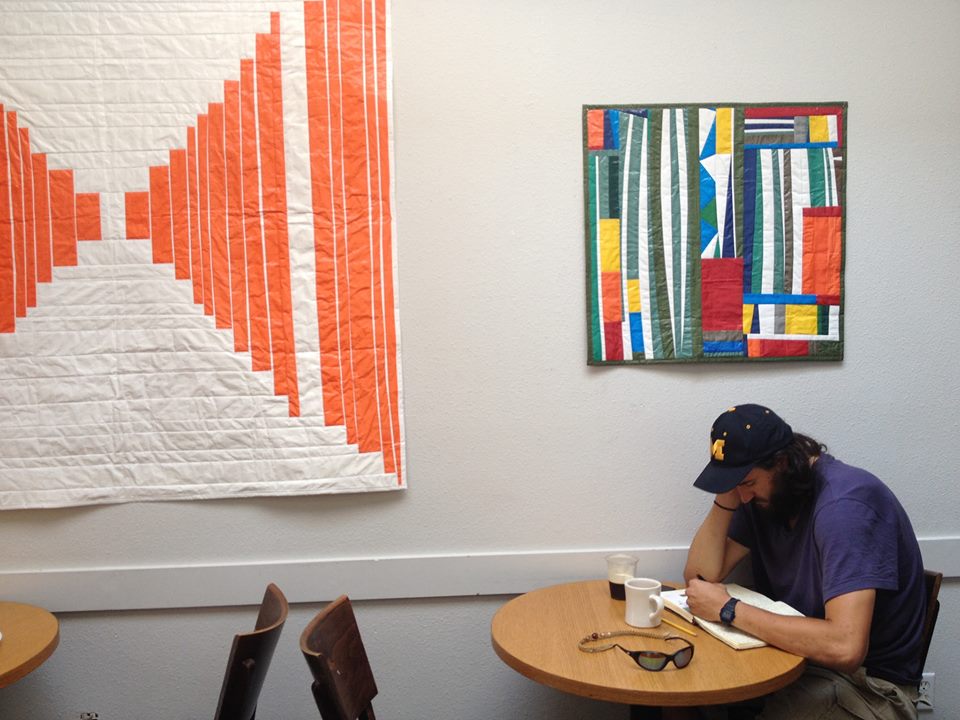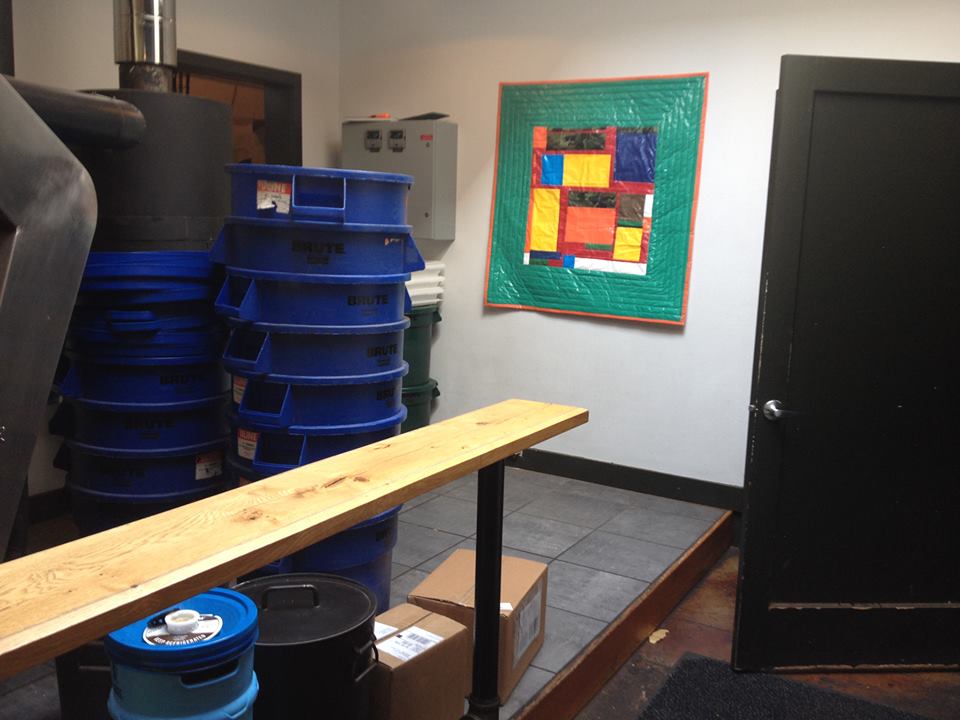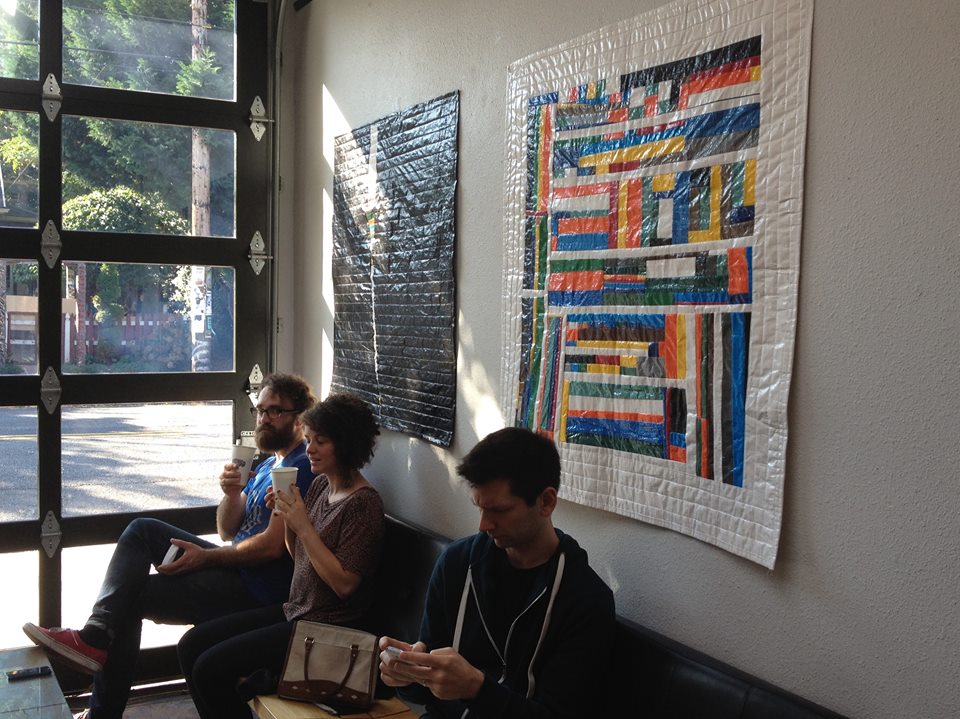How do you explain what you do to people who may not have the best grasp on process-based art?
I'm not sure I have the best grasp on what process-based art is myself. People always want to know what kind of art I do and I'm always a bit at a loss for words. I tell them, "Oh, all kinds." And they're like, "So do you paint? Sculpt?" And I'm like, "Yes, that, and I make big environments, and I preform." I usually try to give examples of the kind of stuff I do, like, "I built a half-sized model of my childhood home. I covered the gallery walls with my first name and the last name of every boy I've ever had a crush on. I shredded all my childhood photos into a pile and sorted them out by color." People usually get it from the examples. But then they're always like, "But how do you sell that?" And when I tell them, "You don't," then they get really confused about why I would do it in the first place. This confusion is my "in" to explain process-based art. I try to tell them I'm less concerned with the product, what it looks like, whether it sells, etc., and more interested with what comes up or gets out during the process. I'm very honest with people about why I do art: it's therapy for me. I have a trauma history, and, as a result, I have a lot of mental health issues. I work those issues out with my art. I try to give people observables, like, "I can use soap now that I made that bathtub out of soap." They usually get it. Maybe not my grandparents, but everyone else. And if all else fails, everyone knows the old cliche, "It's not the destination, it's the journey." They get that. But they still don't understand why I would make something that's not for sale. Five years into making process-based work I'm beginning to question myself, in fact.
When are you most productive?
Productivity for me is an ebb and flow. I used to hate that about myself, but I've accepted it. I'm a project artist. I'm not a studio artist. I don't work daily. I don't plug away towards completing a show, I do it all at once. Then I do nothing for months. Then I do it all at once again with a different project. I made 20 of these quilts in the last month, and nine of the little ones in the last two days before the show. I'm very machine-like when I work. I do everything like its a production line. It increases efficiency and gets everything done at once.
I am also much more productive when I have someone to be accountable to. In this case it was the children. I was literally sewing 10 minutes before install because I didn't want to leave any of the kids out. I tend to need someone--maybe it's a curator, a friend, a frenemy, a deadline, someone commissioning me--to kick my butt into gear.
How and why did you make your way to portland and how has the city influenced your work?
I've been here since 2001. I'd always wanted to live in Portland, ever since I was a kid, before I ever knew anything about Portland. When I was a teen and the Internet was first coming to be, I met a bunch of other kids from the Internet and my mom let me go on a road trip to meet them. Portland was a stop on the map. I fell in love with the city and moved here when I was 21. If I could afford a house, I'd stay here forever. As the reality of owning a house seems farther and farther away, I think my heart is moving farther away from Portland, too, which is sad, but true.
I'm not sure how much the city has effected my art, except that I hate the sun. I find it very triggering, it reminds me of where I'm from, where its ungodly hot nine months out of the year. So it's nice to not have to see the sun too much for nine months.
In addition to being a stellar artist, you're also a cab driver. How do you balance art and work lives? How does driving a cab influence your practice?
I have never been good with work-life balance, and I've given up on the hope that I'll ever be. Just like I've given up on being a proper studio artist, I've accepted that I will never be an effective work-life juggler.
Cab driving is the closest I've come to finding a profession that allows some modicum of work-life balance. I like it because the expectations of me are very low. Basically, if I'm reasonably punctual, reasonably polite, and reasonably safe, I'm a good cab driver. That appeals to me. I've always been in high-pressure professional situations, and cab driving is the opposite of that. It's also great because I'm a terrible procrastinator and there's no way to procrastinate in a cab. There's next to no paperwork to fill out, no meetings to plan, no presentations to stress out over, no homework to grade, no lesson plans to prepare, no rigorous performance metrics to meet. When you're done, you're done. You turn the car off, lock the door, and it's back to your life. So I don't feel like I have to take my work home with me. When I'm at home, I'm at home. When I'm at work, I'm at work, but I still have the flexibility when I'm out in the road to take care of home stuff, or art stuff, like sourcing tarps from discount stores around the city. And the time to think is unparalleled. All day long at work-work I get to think about my art-work, to flesh out ideas, play around with language, be inspired by my surroundings. A lot of people might go crazy with that much time to think, but I love it.
Unfortunately, the hours are long. I usually work 10, 12, 14 hour days. So there's not much left in me at the end of the day. There's no hanging out after work. There's no going to the art walks. There's no art making. When I'm working it's just work, sleep, work, sleep, work sleep. But that's fine, because I don't multitask well, and I don't balance things well, I have to focus, focus, focus. So I focus on working-working for a while, then I focus on art-working for a while, and go back and forth between the two in big chunks, because I can't seem to squeeze them into the same day together. It's either one or the other.
Plus, there aren't many industries where you where you can take days, weeks or months off at a time for art and still have a job waiting for you when you get back. I really appreciate that about my job, you know, that I can be in the game, then get out of the game to work on art, and come back. At other jobs I always felt a lot of pressure if I needed to take time off, like I was letting down my boss, co-workers, customers, whatever. As a cab driver, when you take time off the only one who's losing out is you.
What are your thoughts on the Portland art scene? Do you feel like there are enough venues and interest in Portland for process based/relational artists?
At the risk of sounding negative, I probably shouldn't say too much. I've got my friends who do work I respect, and there are spaces I like. My work and I don't seem to fit in too well here. I don't know whether that's because it's process-based, and largely non-commercial, or because my personal narrative is so deeply embedded in the work, or because the work maybe isn't that good. All I know is I like what I'm doing, the non-art-world public seems to like what I'm doing, and whether or not the art spaces and other artists do, well, I can't concern myself too much with that. I just have to keep on making it and let the cards fall where they do.
What is your idea of happiness?
This question feels to me like the time I took a 1-credit elective course on Love & Conflict Resolution. The final project was this piddly-diddly little thing--write a 1-page paper, make a collage, do a painting, put together a mix-tape--about my definition of love. I couldn't do it. I could have turned anything in. But I couldn't do it. My concept of love had been so fractured, I just couldn't do it. I feel the same way about describing happiness. I just can't do it. It's beginning to take shape, and there's a dog and a house and a man friend and a certain kind of light, but it's still a bit too blurry to make concrete.
Biggest influences?
I have a pretty minimal knowledge of current or historical artists. Since I've started working, people in the know have exposed me to some people I like. Michel Francois. Sophie Calle. Rachel Whiteread. Mamma Anderson. Chris Burden. Marina Ambrawhateverhernameis. I like them enough, but mostly I am inspired by my life and trying to make sense of it.
These quilts, however, are definitely inspired by the quilters of Gee's Bend, who I'm grateful to my friend Diana for exposing me to. Just google "Gee's Bend Quilts" and go to the google image search and prepare to have your mind blown away.
What are you reading and listening to right now?
Usually I listen to one album on repeat for the entire duration of a project. I've done Cat Power, Antony and The Johnsons, the Lovers, a few others. This time the soundtrack was silence, punctuated by an every now and then dance party to Wild Beasts. I don't read anything except Vanity Fair. I read enough in graduate school to feel justified in never reading anything other than Vanity Fair for the rest of my life, thank you very much.
What do you do on the internet?
My internet activities are fairly limited. Mostly I take screen captures of residencies, grants and show opportunities I'll never get around to applying for. I waste time on FaceBook. Every now and then I google myself and then I do a little cyberstalking on the art careers of people I don't like. I find the comparison of results of the latter two be a very motivating point of reference. Petty, but true.
Tell me about your partner in crime.
You mean Daisy? Or Ian? The latter says to tell you simply that he's a very handsome mid-40s chap. I'll go one step forward and say if it weren't for him none of those quilts would have binding/trim. I sliced off the tip of my left ring finger with the rotary cutter two days before the show. I could still sew with the injury, but I couldn't pin anything. He did all the pinning of binding, about two days worth of work, not to mention he did all the errand running and frantic girl soothing.
Tell me about your dog.
Daisy is my Great Dane. She is my shadow, my Velcro-dog. She weighs 130 pounds but thinks she weighs about 13. She sleeps with me, under the covers, curled up between my legs, and she gets surprisingly small. I don't think I've ever known love like the love we have for each other. My old therapist once told me, "Talk to yourself the way you talk to your dog. And when you are having bad thoughts about yourself, ask yourself, 'Would I think those thoughts about Daisy?'" So she's a part of my therapy, too. Her, my art, and Ian are making up for the first 30-something years of my life being kinda sucky.
